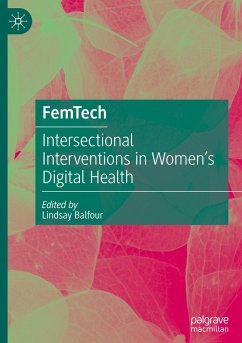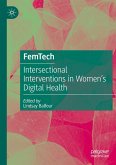This edited collection draws from cultural studies and Feminist Science and Technology Studies to offer a timely and exciting intervention into the growing field of women's digital health. It explores the intersection of gender and embodied computing, with particular attention to access barriers and the forms of biometric surveillance that operate in wearables, ingestibles, and embeddables marketed to women (the industry generally known as "FemTech"). While the most utilized and profitable FemTech products include ovulation and fitness trackers, reproductive technologies, contraceptive microchips, and "smart" pills, this only represents a fraction of health concerns affecting women.
This volume aims to explore FemTech within the context of Feminist Science and Technology Studies, whereby the entanglements of race, class, gender, ability, sexuality and other social and cultural identities are brought to the fore. By addressing the gaps in FemTech research and socio-cultural barriers to access, this volume critiques the forms of knowledge and experience produced through medical and cultural discourses regarding women's bodies to both highlight the inequalities in women's digital health, and imagine alternative models which optimise technology for women in a way that is safe, accessible, and inclusive.
This volume aims to explore FemTech within the context of Feminist Science and Technology Studies, whereby the entanglements of race, class, gender, ability, sexuality and other social and cultural identities are brought to the fore. By addressing the gaps in FemTech research and socio-cultural barriers to access, this volume critiques the forms of knowledge and experience produced through medical and cultural discourses regarding women's bodies to both highlight the inequalities in women's digital health, and imagine alternative models which optimise technology for women in a way that is safe, accessible, and inclusive.








